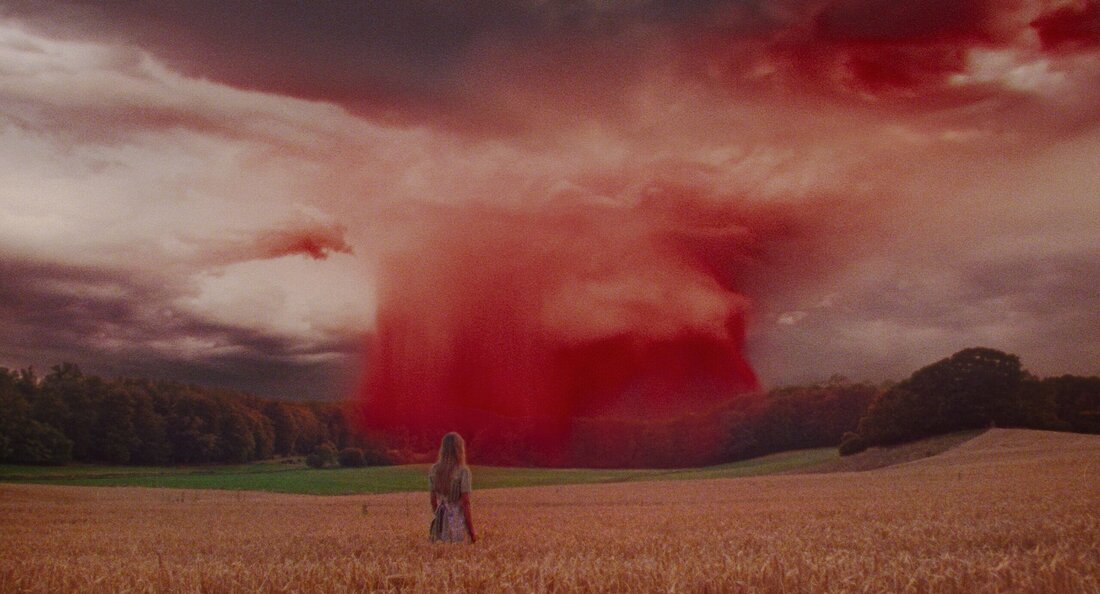|
As In Heaven (dir. Tea Lindeburg) The 2021 Toronto International Film Festival welcomed back some familiar faces and long-awaited returns to their hybrid of in-person and digital screenings. TIFF Tribute Actor Award recipients Jessica Chastain (The Eyes of Tammy Faye; The Forgiven) and Benedict Cumberbatch (The Power of the Dog; The Electrical Life of Louis Wain) each had two films premiere at the festival. Speaking of The Power of the Dog, Jane Campion’s first feature film in over a decade (since Bright Star in 2009) premiered to enthusiastic praise. As did some of the major studio films including WB’s Dune (Denis Villeneuve) and, TIFF People’s Choice Award winner, Focus Features’ Belfast (Kenneth Branagh). With additional titles such as Focus’ Last Night in Soho (Edgar Wright) and NEON’s Spencer (Pablo Larraín), the festival boasted some of the most anticipated new releases. As is the case every festival season, there are plenty more titles that tend to fly under the radar. I saw that many of this year’s hidden gems were in debut features, directed by and starring women. Promising talent, emerging vivid voices with a lot to say, and clear visions create a sense of disbelief that these incoming titles are the filmmakers’ first films. One of TIFF’s initiatives is the Share Her Journey campaign, supporting women’s paths to succeed as storytellers who help shape our cultural landscape (their words). While much progress still needs to be made, their words are ringing more true year by year. Of this year’s lineup, 46% of titles were directed, co-directed, or created by women. 19 of those titles were debut features directed by women. Films such as Hong Sung-eun’s Aloners and Laura Samani’s Small Body explore the weight of isolation and solitary journeys. Also wandering in journeys of their own are Agustina San Martin’s To Kill the Beast and Rhayne Vermette’s Ste. Anne, which feel their way around which direction to take. A number of films feature protagonists following in the footsteps of women who have come before. Tea Lindeburg’s As In Heaven and Kate Dolan’s You Are Not My Mother, respectively set several decades apart, tackle the horrors women face about their health and autonomy. Part of what makes horror films (or ones that have elements of the genre) so appealing is how fear is elicited in different ways. Camille Griffin’s Silent Night raises an existentialist toast to the human spirit with dark comedy. Horror is also drawn from perceptive fears, and from real-life tragedies that reach through time and continue to haunt all those affected. Stanley Nelson’s documentary Attica, co-directed by Traci A. Curry in her first credited feature, gives harrowing insight to the rebellion of Black men and the horrific events that unraveled at the prison over the course of 5 days. Danis Goulet’s dystopian Night Raiders incorporates sci-fi and historical policies to show the harm inflicted on Indigenous people in Canada. Watching these stories continues to amplify the voices of so many communities in front of and behind the camera. Stories of family and intimacy, ones of sticking together and growing apart, ones that carry universality by being so specific. Shasha Nakhai and Rich Williamson’s Canadian slice of life Scarborough, the first runner-up for the TIFF21 People’s Choice, follows three children in a low-income neighborhood who cross paths and become fast friends. It’s a story from which yearning for togetherness and understanding beams. Portrayals of day-to-day life gives a window to many of the protagonists in these debut features. Haya Waseem’s Quickening, Rebecca Huntt’s Beba, and Luàna Bajrami’s The Hill Where Lionesses Roar convey a fire within women drawing from personal experiences. Environment and setting play a heavy part in carrying the waves of emotions and circumstances. Antoneta Alamat Kusijanović’s Murina contrasts a beautiful oceanfront home with deep trouble in paradise. So too does Agnieszka Woszczynska’s Silent Land, a story that exposes the worn-out threads of a couple’s idyllic-looking foundation whilst on vacation. For many, there is no such thing as a place to run away from it all. For the family in Mounia Akl’s Costa Brava, Lebanon, who live isolated in the mountains to escape terrible pollution, the climate crisis catches up to their backyard. While some ranging in quality and not always sticking the landing, these films have something to say, from a promising voice behind the camera. With TIFF pushing in a promising direction (and hopefully more to come), it would be interesting to see how many of these first-time feature directors become familiar faces during festival seasons years from now. Considering some of the spellbinding debuts that premiered at TIFF21, I look forward to the follow-ups. Aloners (dir. Hong Sung-eun) A solitary woman re-evaluates her isolated existence after her neighbour dies alone in his apartment, in Hong Sung-eun’s subtle debut feature. Small Body (dir. Laura Samani) Set in northeastern Italy in 1900, Laura Samani’s feature debut follows a grieving mother on a mythopoetic journey to give her stillborn child a name. To Kill The Beast (dir. Agustina San Martin) Agustina San Martín’s feature directorial debut is a bold piece of tropical gothic that puts young female desire at the centre of its loose narrative. Ste. Anne (dir. Rhayne Vermette) This stirring debut feature by Manitoban filmmaker and artist Rhayne Vermette is a formally alluring examination of home by way of places and people. As In Heaven (dir. Tea Lindeburg) Religious dogma and superstition threaten the dreams of a young 19th-century woman, in Tea Lindeburg’s period film that feels eerily contemporary. You Are Not My Mother (Kate Dolan) An eerie Irish folk horror wherein a teenage girl’s mother goes missing only to return with an increasingly uncanny change in personality. Silent Night (dir. Camille Griffin) Keira Knightley stars in Camille Griffin’s feature directorial debut, about a family’s eventful Christmas dinner in the country. Night Raiders (dir. Danis Goulet) Danis Goulet’s singular thriller draws on Canada’s ugly colonial legacy for a propulsive piece of genre cinema set in a dystopian postwar future. Scarborough (dir. Shasta Nakhai & Rich Williamson) Three kids in a low-income neighbourhood find friendship and community in an unlikely place, in this adaptation of Catherine Hernandez’s award-winning book. Attica (dir. Traci A. Curry & Stanley Nelson) Stanley Nelson examines the largest prison uprising in US history, conducting dozens of new interviews with inmates, journalists, and other witnesses. Beba (dir. Rebecca Huntt) A raw, poetic self-portrait in which young, NYC-born Afro-Latina Rebeca “Beba” Huntt stares down historical, societal, and generational trauma. Costa Brava, Lebanon (dir. Mounia Akl) Saleh Bakri and Nadine Labaki star in Mounia Akl’s impassioned debut, an eerie family drama set amid a raging climate crisis in near-future Lebanon. Murina (dir. Antoneta Alamat Kusijanović) The dynamic between a restless teenager and her oppressive father changes when a family friend arrives at their isolated Croatian home. Silent Land (dir. Agnieszka Woszczynska) A bourgeois Polish couple’s relationship disintegrates during a stressful Italian vacation, in Aga Woszczyńska’s richly observed feature debut. Quickening (dir. Haya Waseem) The debut feature from writer-director Haya Waseem explores the life of a young woman of colour navigating love, heartbreak, and family turmoil. The Hill Where Lionesses Roar (Luàna Bajrami) In a remote Kosovar village, three young women who feel their dreams have been stifled go on a quest for independence. *Title synopses from tiffr
0 Comments
Leave a Reply. |
Archives
June 2024
Categories |






 RSS Feed
RSS Feed